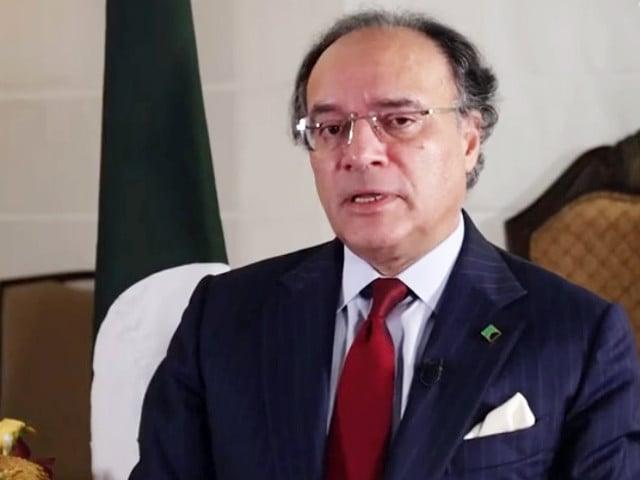The senator of the Federal Finance Minister, Muhammad Aurengzeb, said on Saturday that the information technology (IT) and the Pakistan mineral sectors have transformative potential for the national economy.
He stressed that these sectors would change the game in the coming years, adding that under the leadership of Prime Minister Shahbaz Sharif, the country’s economic direction has become clearer, with positive results that are expected soon.
When addressing the business community in the Chamber of Commerce and Industry of Lahore (LCCI), the Minister of Finance highlighted the government’s commitment to listen and resolve the challenges of the private sector.
“We are here to serve people. I am visiting cameras to listen, understand and solve problems from the business community. The legitimate demands of the cameras will be accepted,” he said.
Aurengzeb cited Singapore’s success with nickel exports, which reaches the USD 22 billion, and obtained parallels with Pakistan’s copper reserves, which underline the vast potential of the mineral sector. He also pointed out a growing world interest in IT and Pakistan minerals and reiterated the government’s determination to eliminate barriers for local and foreign investors.
On economic stability, the finance minister pointed to the improved macroeconomic indicators, indicating:
“Lowering inflation is essential for economic stability. The interest rate was 22 percent, today is 12 percent.”
He emphasized the importance of reducing financial costs, energy tariffs and implementing improved tax policies to stimulate industrial growth.
Aurengzeb also said that restrictions on the repatriation of profits for foreign investors had been raised, restoring investors.
“We ensure that the benefits of reduced inflation reach the common man directly. The intermediaries cannot exploit the system,” he promised.
When addressing fiscal challenges, the minister recognized the load of the salaried class:
“The Income Tax is deduced at the source, and we intend to offer relief to the wage segment.”
He revealed that 24 national entities had been intended for privatization and requested to minimize human interaction in the system to reduce inefficiencies.
“If we can increase the relationship imposed to GDP to 13 percent, we can offer a broader relief to several sectors,” he said, and said that reducing edible prices had limited opportunities for intermediaries to exploit the system.
During the Question and Answers session, Aurengzeb confirmed that visa -related problems were regularly discussed at meetings during visits abroad of the Prime Minister and were addressed priority.
He reaffirmed the government’s commitment to commit to the private sector:
“The private sector plays a key role in the execution of any country. A committee has formed, according to the direction of the Prime Minister, who is working on GSP Plus.”
The president of LCCI, Mian Abuzar, praised the government’s steps towards the economic rebirth.
“We appreciate the reduction in the policy rate of 22 percent in June 2023 to 12 percent now. This will relieve access to capital for companies,” he said, added that inflation had decreased from 20.7 percent in March 2024 to only 0.7 percent in March 2025.
He also praised the launch of the “Uraan Pakistan” program, with the aim of increasing exports to USD 60 billion, attracting USD 10 billion in annual private investment, creating a million jobs per year and addressing climatic and energy objectives. He highlighted the special role of the Investment Facilitation Council (SIFC) in improving investors confidence.
The senior vice president of LCCI, engineer Khalid Usman, recommended increasing the billing threshold to retain RS agents. 100 million at RS. 250 million. He expressed concern about the freezing of FBR bank accounts in the light of pending judicial cases on the capital value tax (CVT) under the amnesty scheme, qualifying the unjustified practice.
Vice President Shahid Nazir Chaudhry requested long -term economic planning, which suggests a consistent policy map of 10 years. He proposed fiscal deductions on R&D expenses by private companies to promote innovation and technological development.
The vice president of the Saarc Chamber, Mian Anjum, Nisar echoed the need for economic growth driven by innovation.
The session was attended by representatives of the Federal Income Board (FBR), business leaders and members of several cameras.




